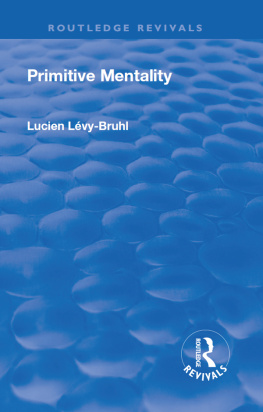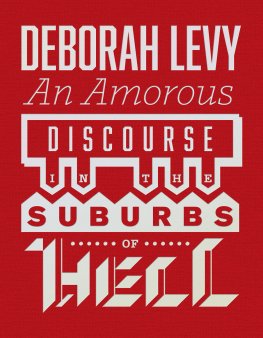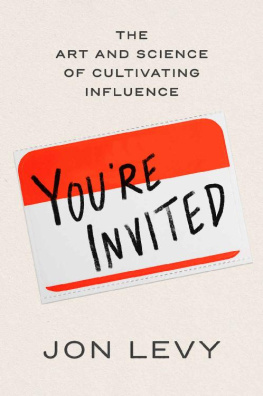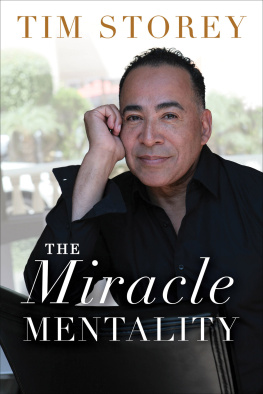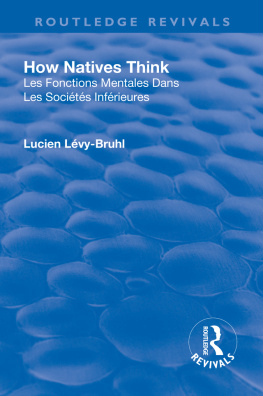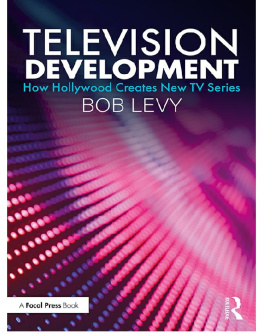Levy-Bruhl - REVIVAL: primitive mentality (1923)
Here you can read online Levy-Bruhl - REVIVAL: primitive mentality (1923) full text of the book (entire story) in english for free. Download pdf and epub, get meaning, cover and reviews about this ebook. year: 2017;1923, publisher: Taylor & Francis (CAM);Routledge, genre: Religion. Description of the work, (preface) as well as reviews are available. Best literature library LitArk.com created for fans of good reading and offers a wide selection of genres:
Romance novel
Science fiction
Adventure
Detective
Science
History
Home and family
Prose
Art
Politics
Computer
Non-fiction
Religion
Business
Children
Humor
Choose a favorite category and find really read worthwhile books. Enjoy immersion in the world of imagination, feel the emotions of the characters or learn something new for yourself, make an fascinating discovery.
REVIVAL: primitive mentality (1923): summary, description and annotation
We offer to read an annotation, description, summary or preface (depends on what the author of the book "REVIVAL: primitive mentality (1923)" wrote himself). If you haven't found the necessary information about the book — write in the comments, we will try to find it.
REVIVAL: primitive mentality (1923) — read online for free the complete book (whole text) full work
Below is the text of the book, divided by pages. System saving the place of the last page read, allows you to conveniently read the book "REVIVAL: primitive mentality (1923)" online for free, without having to search again every time where you left off. Put a bookmark, and you can go to the page where you finished reading at any time.
Font size:
Interval:
Bookmark:

By
Lucien Lvy-Bruhl
Professor at the Sorbonne
Authorized Translation
by
Lilian A. Clare

COMTE
IN FRANCE
philosophers.
une introduction par Lvy-Bruhl.
LES SOCITS INFRIEURES
TRADUITES DE LANGLAIS
L. Lvy-Bruhl.
By
Lucien Lvy-Bruhl
Professor at the Sorbonne
Authorized Translation
by
Lilian A. Clare
LONDON: GEORGE ALLEN & UNWIN LTD.
UNWIN BROTHERS, LIMITED, THE GRESHAM PRESS, LONDON AND WOKING
ALTHOUGH, as the Author clearly states in his preface, this book is to be considered as a sequel to his earlier work on the mental functioning of primitive peoples, that fact need not deter anyone who has not seen the other (which was published in 1910 and is now in its third edition) from reading this one. The subject is treated from another point of view, of equal value to the scientist and the psychological expert, while the theories postulated by Professor Lvy-Bruhl, and the wealth of illustrative matter brought forward in support of them, will interest the veriest tyro in the study of mentality. In a colonizing country such as ours there are many who, like myself, while not possessed of any scientific knowledge of ethnological or anthropological matters, have yet had first-hand and varied experience of natives in some cases but slightly removed from the primitive. To such, this book will prove a fascinating study, and its careful perusal will enable them to understand better, much that has puzzled them hitherto.
The very real sense in which the primitive participates in the mystic nature of all that surrounds him, the way in which he lives in the seen and the unseen worlds simultaneously, and his indifference to the law of contradiction, formed the main theme of Les Fonctions Mentales dans les Socits Infrieures. In the present volume the author examines more fully the content of the primitives experience, lays stress upon his determinism, and emphasizes the consistent quality of his mental functioning, when regarded from his own standpoint, and interpreted in terms of his own orientation.
In case the term collective representations, in constant use here, should not convey a very clear idea to those who have not read the earlier book, I am quoting from that work some passages where it occurs. Professor Lvy-Bruhl, speaking of the difficulty of applying the terminology of ordinary psychology to the consideration of a type of mental functioning which differs widely from our own, thinks it necessary at any rate to specify the new meaning which an already existing expression should assume when applied to an object other than that it has hitherto betokened. In defining the term roughly, he says: Collective representations may be recognized by the following signs. They are common to the members of a given social group; they are transmitted from one generation to another within it; they impress themselves upon its individual members and awaken in them sentiments of respect, fear, adoration, and so on, according to the circumstances of the case. Their existence does not depend upon the individual. This is not because they imply a collective entity apart from the individuals composing the social group, but because they present themselves in aspects which cannot be accounted for by considering individuals merely as such.
Although representation is, par excellence, an intellectual and cognitive phenomenon we cannot consider the collective representations of primitives thus. Their mental activity is too little differentiated for it to be able to regard the ideas or images of objects by themselves, apart from the sentiments, emotions, and passions which evoke them, or are evoked by them. Just because our mental activity is more differentiated, and we are more used to analysing its functions, it is difficult for us to realize, by any effort of imagination, more complex states in which the emotional or the motivating elements are integral parts of the representation. It seems to us that these are not really representations, and in fact if we are to retain the term we must modify its meaning in some way. By this state of mental activity in primitives we must understand something which is not a purely or even partially intellectual or cognitive phenomenon, but a more complex one, in which what is really representation to us is found blended with other elements of an emotional or motivating character, coloured and imbued by them, and therefore implying a different attitude with regard to the objects they represent. The collective representations of the primitive, therefore, differ profoundly from our ideas or concepts; nor are they the equivalent of them. On the one hand they have not the logical character of our ideas. On the other hand, not being purely representations, in the strict sense of the term, they express or rather they imply, not only that the primitive actually has an image of the object and believes it is real, but also that he hopes or fears something from it; that some definite action emanates from it or is exercised upon it. This action is an influence, a virtue, an occult power, varying according to its objects and circumstances, but always real to the primitive, and forming an integral part of his representation. If I were to express in one word this general property of the collective representations holding so important a place in the mental activity of undeveloped peoples, I should say that their mental activity was a mystic one. I shall use this term in default of a better, not referring thereby to the religious mysticism of our communities, which is something quite different, but employing it in the strictly definite sense in which mystic implies belief in forces and influences and actions which, though imperceptible to sense, are nevertheless real.
Next pageFont size:
Interval:
Bookmark:
Similar books «REVIVAL: primitive mentality (1923)»
Look at similar books to REVIVAL: primitive mentality (1923). We have selected literature similar in name and meaning in the hope of providing readers with more options to find new, interesting, not yet read works.
Discussion, reviews of the book REVIVAL: primitive mentality (1923) and just readers' own opinions. Leave your comments, write what you think about the work, its meaning or the main characters. Specify what exactly you liked and what you didn't like, and why you think so.

